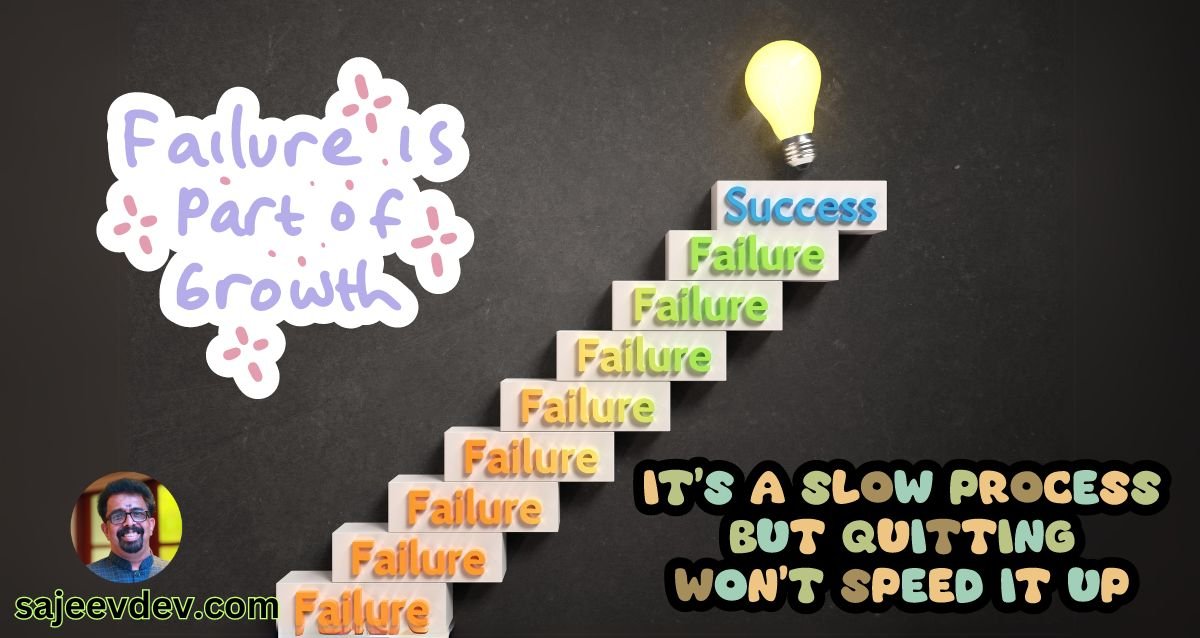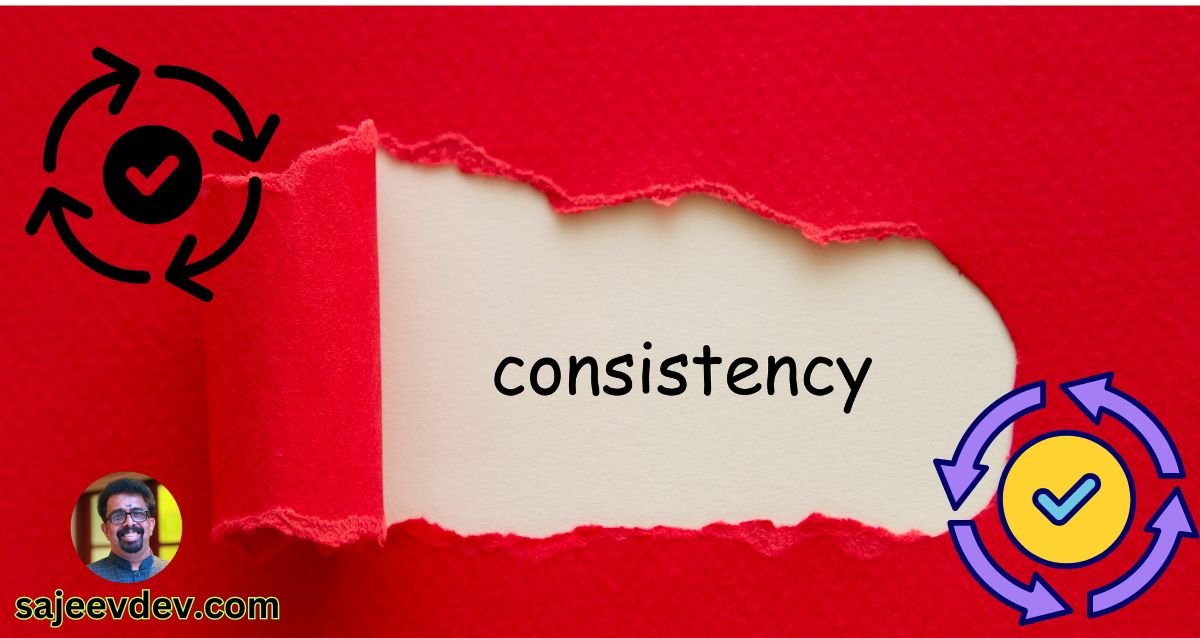The Misconception of Failure
Failure is commonly perceived as a setback, a sign of weakness, or an indication of inadequacy. This cultural belief fosters a powerful stigma around failure, leading many individuals to dread the possibility of not achieving their goals. In societies that celebrate success, the narrative surrounding failure often becomes one of shame, discouragement, and self-doubt. However, this perception needs to be critically examined and reshaped, particularly in the context of personal and professional growth.
From an early age, many individuals are conditioned to associate failure with negative outcomes. Whether it is in educational settings, sports, or career pursuits, the societal refrain often emphasizes the importance of unblemished success. Such a viewpoint cultivates an environment where individuals become increasingly reluctant to take risks or try new endeavors. The fear of failing can inhibit innovation, creativity, and ultimately growth.
However, when failure is viewed through a different lens, it can be transformed into a valuable learning opportunity. Each failure provides essential insights and lessons that contribute to personal development. Instead of labeling failure as a definitive end, it can be understood as part of a continuous journey toward mastery and improvement. Reframing failure in this manner allows individuals to cultivate resilience and adaptability, building strength rather than diminishing it.
Examining the cultural stigma associated with failure can empower individuals to adopt a more constructive perspective. Acknowledging that failure is not the opposite of success but rather a critical component of it can pave the way for healthier attitudes toward challenges. This shift in mindset encourages individuals to embrace risks and consider failures as stepping stones toward their future achievements. By facing failure bravely, individuals can unlock their true potential and enhance their growth, both personally and professionally.
Understanding Failure: More Than Just an Obstacle
Failure is often perceived as a deterrent, an undesirable outcome that many strive to avoid. However, a nuanced understanding of failure unveils its role as a pivotal component of personal and professional growth. Psychologically, the impact of failure extends beyond mere disappointment; it challenges our beliefs and self-perceptions, prompting a reconsideration of our capabilities and aspirations. The emotional response to failing can provoke a spectrum of feelings, ranging from embarrassment to motivation, ultimately reshaping our attitudes toward future endeavors.
Our individual experiences significantly influence how we respond to failure. These responses are often colored by past events, societal expectations, and ingrained attitudes toward success and setback. For instance, individuals raised in environments that encourage risk-taking may approach failure with resilience, viewing it as a stepping stone. On the other hand, those conditioned to view failure as a definitive end may find themselves paralyzed by the thought of making mistakes. This disparity highlights the significance of one’s belief systems, as they can either constrict or expand our potential for recovery and adaptation.
Moreover, embracing failure as part of the learning process enables a transformation in perspective. It can be seen as an invaluable source of feedback, providing insights that success often conceals. By analyzing our failures, we identify weaknesses, refine our strategies, and enhance our skills. This process emphasizes that failure is not merely an obstacle but a fundamental aspect of a larger journey, rich with opportunities for growth. It fosters perseverance, encouraging individuals to adapt their approaches and adopt a more resilient mindset, which is essential in both personal development and professional settings.
Lessons from Failure: What It Teaches Us
Experiencing failure can often feel disheartening, but it serves as a critical learning opportunity that can lead to growth and development. Throughout history, stories abound of individuals and organizations that have faced setbacks, only to emerge stronger and more resilient. One of the valuable lessons learned from failure is the importance of resilience. Resilience is the ability to bounce back after hardships, and it can be cultivated through exposure to difficult situations. For instance, many successful athletes attest that their setbacks in competition have taught them how to adapt, persevere, and ultimately improve their skills.
Moreover, failure fosters adaptability, which is crucial in an ever-changing world. In the realm of business, companies that encounter challenges often analyze these events to recalibrate their strategies. For example, tech giants such as Apple and Google have undergone product failures that prompted revisions leading to groundbreaking innovations. Each setback resulted not only in a better understanding of their market but also enhanced their ability to pivot when necessary.
Additionally, failures can sharpen our problem-solving skills. Experiencing a failure forces individuals to re-evaluate their approach and find alternative solutions to the challenges at hand. For example, personal endeavors such as starting a new venture can be fraught with obstacles. However, entrepreneurs who learn from their missteps are often better equipped to navigate future uncertainties, refining their original idea or even discovering new pathways to success.
Ultimately, the lessons gleaned from failures envelop essential qualities like resilience, adaptability, and enhanced problem-solving capabilities. By recognizing the profound impact that failure can have on our journey, we can turn setbacks into stepping stones, fostering a culture where we embrace challenges as opportunities for growth.
Building Resilience: The Strength Gained from Setbacks
Resilience is the ability to bounce back from setbacks and challenges, an essential quality for overcoming failures in both personal and professional contexts. It acts as a crucial buffer against the difficulties that life inevitably presents. Understanding resilience is the first step towards cultivating it; individuals with high resilience view setbacks not as dead ends but as opportunities for growth and learning. This mindset shift is vital for anyone looking to build their strength in the face of adversity.
Facing failure head-on can significantly contribute to strengthening resilience. Each experience of disappointment offers a lesson, allowing individuals to develop coping strategies that can be applied in future scenarios. Embracing failure means confronting discomfort and uncertainty but doing so leads to greater self-awareness and adaptability. Those who engage with failures learn to navigate challenges with a sense of purpose and determination that ultimately fortifies their character.
To cultivate resilience, two key strategies can make a significant impact: positive self-talk and strong support systems. Positive self-talk involves consciously shifting negative thoughts into constructive ones. By redefining their internal dialogue, individuals can reduce feelings of hopelessness and replace them with a proactive approach to overcoming difficulties. This practice not only mitigates the potential emotional fallout of failure but also reinforces a sense of agency within individuals.
Simultaneously, building a robust support system is imperative. Having access to friends, family, or mentors provides emotional validation and practical assistance when navigating life’s challenges. These relationships can inspire individuals to view setbacks through a collaborative lens, making it clear that they are not alone in their struggles. Ultimately, by embracing failure and nurturing resilience, individuals not only become stronger but also develop the tools necessary to thrive amidst life’s inevitable uncertainties.
Success Stories: Individuals Who Turned Failure into Triumph
Throughout history, numerous remarkable individuals have demonstrated that failure can serve as an essential catalyst for success. These stories illustrate the resilience and determination required to transform setbacks into opportunities for growth and achievement. One prominent example is Thomas Edison, the inventor who is famous for his role in developing the electric light bulb. In the face of numerous unsuccessful attempts and over a thousand failures, Edison maintained a steadfast belief that each setback was merely a lesson. His perseverance ultimately led to the light bulb’s invention, highlighting that failure can often precede remarkable triumph.
Another inspiring figure is J.K. Rowling, the author of the globally beloved Harry Potter series. Prior to achieving literary success, Rowling faced a series of personal and professional challenges, including being a single mother living on welfare. Rejections from multiple publishers seemed to signal the end of her dreams, yet Rowling’s unwavering commitment to her craft propelled her to keep submitting her manuscript. Eventually, a publisher recognized the potential in her work, leading to an extraordinary success story and a legacy that continues to inspire millions of readers worldwide.
The world of sports also showcases the power of turning failure into success. Michael Jordan, widely regarded as one of the greatest basketball players, faced an initial setback in high school when he was cut from the varsity team. Instead of succumbing to disappointment, Jordan utilized this experience as motivation to enhance his skills. His relentless work ethic and dedication resulted in an illustrious career in basketball, serving as a testament to the idea that failure can pave the way for great accomplishments.
These accounts emphasize that failure is not the end but rather a necessary stepping stone on the journey to success. By embracing their challenges, these individuals transformed their setbacks into triumphant narratives, reminding us that resilience and determination are key components of achievement.
The Role of Mindset in Navigating Failure
Mindset plays a pivotal role in how individuals perceive and respond to failure. It serves as the lens through which experiences are interpreted, influencing emotional and cognitive responses. A key distinction in the realm of personal development is between a growth mindset and a fixed mindset. A growth mindset is characterized by the belief that abilities and intelligence can be developed through dedication and hard work, whereas a fixed mindset reflects the belief that one’s capabilities are static and unchangeable.
Individuals with a growth mindset view failure not as a reflection of their capabilities but as an integral part of the learning process. They understand that setbacks offer invaluable lessons and opportunities for growth. This perspective fosters resilience, encouraging individuals to embrace challenges and persist in the face of adversity. In contrast, those with a fixed mindset might see failure as a confirmation of their limitations, which can lead to avoidance of risks and a reluctance to engage in new experiences.
Research has demonstrated that adopting a growth-oriented approach significantly enhances motivation and fosters a more robust ability to navigate difficulties. For instance, when faced with obstacles, individuals with a growth mindset are more likely to employ problem-solving strategies and seek feedback, viewing such interactions as instrumental in their development. This adaptability not only propels personal growth but also cultivates a sense of agency in overcoming challenges.
Moreover, the cultivation of a growth mindset can positively impact one’s emotional well-being, as it encourages a more optimistic outlook on life’s uncertainties. By reframing failure as a stepping stone rather than a stumbling block, individuals can alleviate the fear associated with making mistakes and promote a healthier relationship with learning and personal development.
Practical Steps to Embrace and Learn from Failure
Embracing failure is a critical component of personal and professional growth. By adopting practical strategies, individuals can learn to view setbacks as valuable learning opportunities. One effective method is to foster a mindset that welcomes experimentation. Rather than fearing mistakes, encourage a culture where trying new approaches is viewed positively. This could involve setting aside time for creative brainstorming sessions without the pressure of immediate results, promoting the idea that innovation often stems from risk-taking.
Another fundamental step is to process failure constructively. When faced with a setback, take time to analyze the situation objectively. Ask yourself what went wrong and identify any patterns that emerged. Documenting these experiences can provide insight into recurring challenges and facilitate understanding of personal or organizational limitations. By cultivating this reflective practice, individuals can create a comprehensive understanding of their mistakes, allowing for applicable strategies to avoid them in the future.
Furthermore, creating open communication about failure within teams can significantly enhance the learning process. Encourage team members to share their experiences and insights regarding failures, thereby normalizing the discussions around setbacks. This not only helps individuals feel supported but also promotes collective problem-solving. When team members articulate their failures and corresponding lessons learned, they contribute to a knowledge base that can benefit everyone, further strengthening the group dynamic.
Lastly, balance the acceptance of failure with resilience. Encourage the practice of setting goals that embrace both the potential for success and the inevitability of failure. This dual focus fundamentally shifts how failures are perceived, underscoring the belief that each failure presents an essential step toward achieving ultimate success. Through these approaches, individuals and organizations can cultivate an environment that genuinely values learning from failure and leverages it as a foundation for strength.
Creating a Supportive Environment Around Failure
In navigating the complexities of personal and professional growth, surrounding oneself with a community that embraces failure is paramount. A supportive environment not only alleviates the stigma associated with setbacks but also fosters resilience and encourages individuals to take calculated risks. It is essential to create networks where sharing experiences, particularly those involving failures, is met with understanding and empathy rather than judgment.
Building such a community begins with identifying individuals who resonate with your journey. These can be friends, family members, or colleagues who recognize that failure is not the end but rather an essential component of the learning process. Engaging with people who view setbacks as opportunities for growth helps cultivate a mindset that embraces risks and values personal development.
Furthermore, focusing on open communication within these networks can significantly enhance the supportive atmosphere. Encouraging members to share their stories of failure, their feelings around those experiences, and the lessons learned can facilitate a deeper understanding of the challenges faced. This exchange of narratives can create a sense of belonging and mutual support, allowing individuals to feel less isolated in their struggles.
Another effective strategy is to establish safe spaces for these discussions, whether through regular meetings, workshops, or online forums. These platforms should promote honesty and vulnerability, ensuring that participants feel comfortable expressing themselves without fear of negative repercussions. It is also beneficial to highlight the successes that follow failure, reinforcing the idea that every setback is an avenue for growth.
In conclusion, creating a supportive environment around failure is key to transforming how individuals perceive setbacks. By cultivating a community that celebrates risk-taking and shares personal narratives, individuals can foster resilience and empower one another on their journeys of growth and self-discovery.
As we reflect on the journey through failure, it becomes increasingly clear that it acts not as an endpoint but as a vital stepping stone toward success
As we reflect on the journey through failure, it becomes increasingly clear that it acts not as an endpoint but as a vital stepping stone toward success. Throughout the article, we have explored how the experience of failure can cultivate essential qualities such as resilience, adaptability, and inner strength. Each setback serves to teach valuable lessons that can ultimately propel individuals forward, enriching their personal and professional growth.
Reframing failure as a catalyst for growth allows individuals to embrace their missteps with a renewed perspective. By acknowledging that failure is a natural part of the learning process, we equip ourselves with the tools necessary to navigate future challenges. Rather than perceiving failure as an obstacle, seeing it as an opportunity encourages a mindset geared toward continuous improvement. Each failure contributes to a deeper understanding of ourselves and our goals, fostering an environment where growth can thrive.
Moreover, the act of embracing failure can significantly diminish its negative emotional impact. By destigmatizing failure, we can create communities that support openness and understanding surrounding setbacks, thus encouraging more individuals to pursue their ambitions without fear of falling short. It becomes essential for individuals to share their stories of failure, fostering a culture that celebrates the learning gained from these experiences.
In conclusion, the journey through failure is replete with potential for growth and self-discovery. By shifting our perception of failure from a negative outcome to a vital aspect of the success journey, we lay the groundwork for resilience and strength. Ultimately, embracing our failures not only enriches our experiences but also strengthens our resolve, paving the way for future achievements and fostering a proactive approach to life’s challenges.



